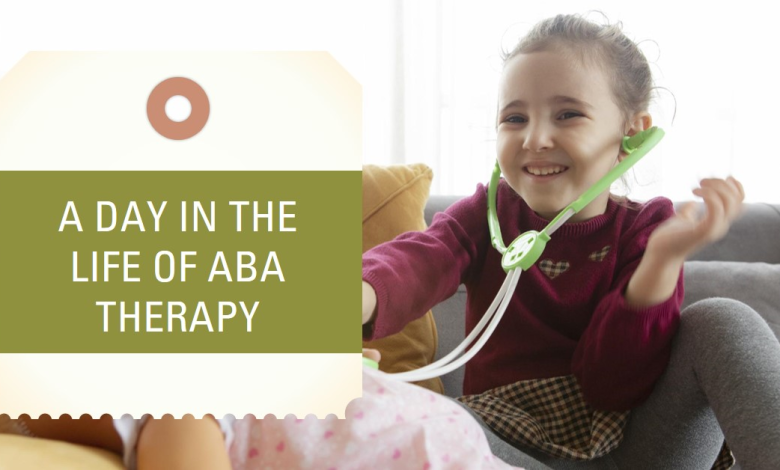A Day in the Life: ABA Therapy Sessions in Baltimore

Morning Routine
In Baltimore, early mornings are often filled with anticipation for those involved in Applied Behavior Analysis (ABA) therapy. Many therapy sessions begin around 8:00 AM. Families usually start their day by preparing for the session, ensuring their child is dressed comfortably and ready to learn. Breakfast might include familiar foods that help set a positive tone for the day. For parents, the morning routine can also involve gathering necessary materials, such as homework or therapeutic tools that may be used during the session.
Children participating in ABA therapy sessions often have varied experiences based on their needs and therapy approaches. Some children might feel excited about their sessions, mainly if they have bonded with their therapist, while others might feel anxious or apprehensive. For therapists, it’s essential to stay updated with the latest RBT supervision requirements 2022 to ensure that each session meets regulatory standards. Creating a supportive environment at home is also crucial. Parents often use calming techniques such as breathing exercises or visual schedules to help their child transition smoothly into the day’s activities.
Arriving at the Therapy Centre
As parents and children arrive at the therapy center, there is usually a welcoming atmosphere. The clinic may be brightly decorated with engaging artwork and educational materials that catch the children’s eye. Greeting staff members and peers can also help start the day positively. The entrance area might feature a waiting room filled with toys and books, allowing children to interact with each other before therapy begins.
Once the child is ready, the therapist will often conduct a brief check-in to assess how the child feels that day or review any experiences that may have occurred since the last session. This connection helps to create a therapeutic alliance where the child feels safe and supported, ready to engage in the learning process. For many therapists, building rapport is critical to effective ABA practices.
Structured Sessions
Typical ABA therapy sessions last between 1 and 2 hours and include various activities to teach specific skills. These activities are structured to provide a consistent routine, allowing for predictable transitions that can help reduce anxiety in children. Each session usually begins with a review of the goals established in previous meetings, followed by practice of those skills through various techniques, including discrete trial training and natural environment teaching.
Therapists often use positive reinforcement strategies to encourage desired behaviors during the session. This may involve verbal praise, tangible rewards, or tokens the child can collect. Therapists ensure that learning opportunities are fun and meaningful, allowing the child to engage in achievable yet slightly challenging tasks and encouraging growth and development.
Play is also an essential component of ABA therapy baltimore. Incorporating play helps children to develop social skills and emotional regulation. Activities may involve role-playing, interactive games, or group projects that promote teamwork and communication. This approach fosters learning and enjoyment, making the therapy a fun experience rather than a chore.
Breaks and Reinforcement
Scheduled breaks are an essential aspect of the daily routine within an ABA session. These breaks may occur after a set work period, allowing children to decompress and recharge mentally. During breaks, children might be encouraged to engage in calming activities, such as sensory play with sand or water, or have free playtime. This is also an opportunity for therapists to observe how the child interacts during unstructured play, which can provide valuable insights into social skills and interpersonal interactions.
Positive reinforcement continues during breaks, as therapists may use this time to promote discussions about feelings or preferences. Such activities help build language skills while teaching children to express their emotions. This dual focus on skill development and emotional growth is characteristic of effective ABA therapy.
Parental Involvement
Parental involvement is crucial in ABA therapy. Therapists typically encourage parents to observe and participate when appropriate throughout the sessions. They might suggest strategies for implementing skills learned during home or community treatment. This continuity helps to generalize learned behaviors outside of the therapy environment.
Moreover, therapists regularly meet with parents to discuss progress, share insights, and adjust goals. This collaboration fosters a shared understanding of the child’s development, ensuring that everyone involved is aligned in supporting the child’s needs.
Afternoon Wrap-Up
As the therapy session ends, therapists will spend a few minutes wrapping up. This might include summarising the day’s achievements, discussing what skills were practiced, and outlining objectives for the next session. Many therapists also maintain clear documentation of the session, noting the child’s responses, progress, and any challenges faced, which is essential for ongoing assessment and adjustment of therapy plans.
When it’s time to leave, the child often takes home a visual schedule or a note outlining what was accomplished. This provides a framework for discussion at home and can help children remember their positive experiences during therapy.
Evening Reflection and Preparation
After a full day of structured learning and exploration, the evenings often become a time for reflection for both children and parents. Families may discuss the day, revisit the skills learned, or engage in activities reinforcing therapy objectives. Dinner may include informal talk about progress or the utilization of strategies practiced during the day, further embedding these skills into everyday life.
This consistency between therapy sessions and home life enhances the overall effectiveness of ABA. Recognizing small victories and celebrating improvements can significantly boost a child’s confidence and motivation.
Conclusion
A day in Move Up ABA Maryland is filled with structure, support, connection, and growth. It combines educational strategies with a nurturing approach, providing a comforting and secure environment to cultivate essential skills. With the involvement of dedicated therapists and engaged families, these sessions offer vital support, enabling children with developmental challenges to thrive in a positive environment. The impact extends beyond the therapy room, fostering a brighter and more hopeful future for the children and their families.
A typical day culminates in reflection, re-energizing for future sessions, and ongoing collaboration that reinforces the importance of a supportive community in the journey of growth and learning. As the sun sets over Baltimore, many families can rest easy knowing they are taking meaningful steps forward, feeling involved and valued.



